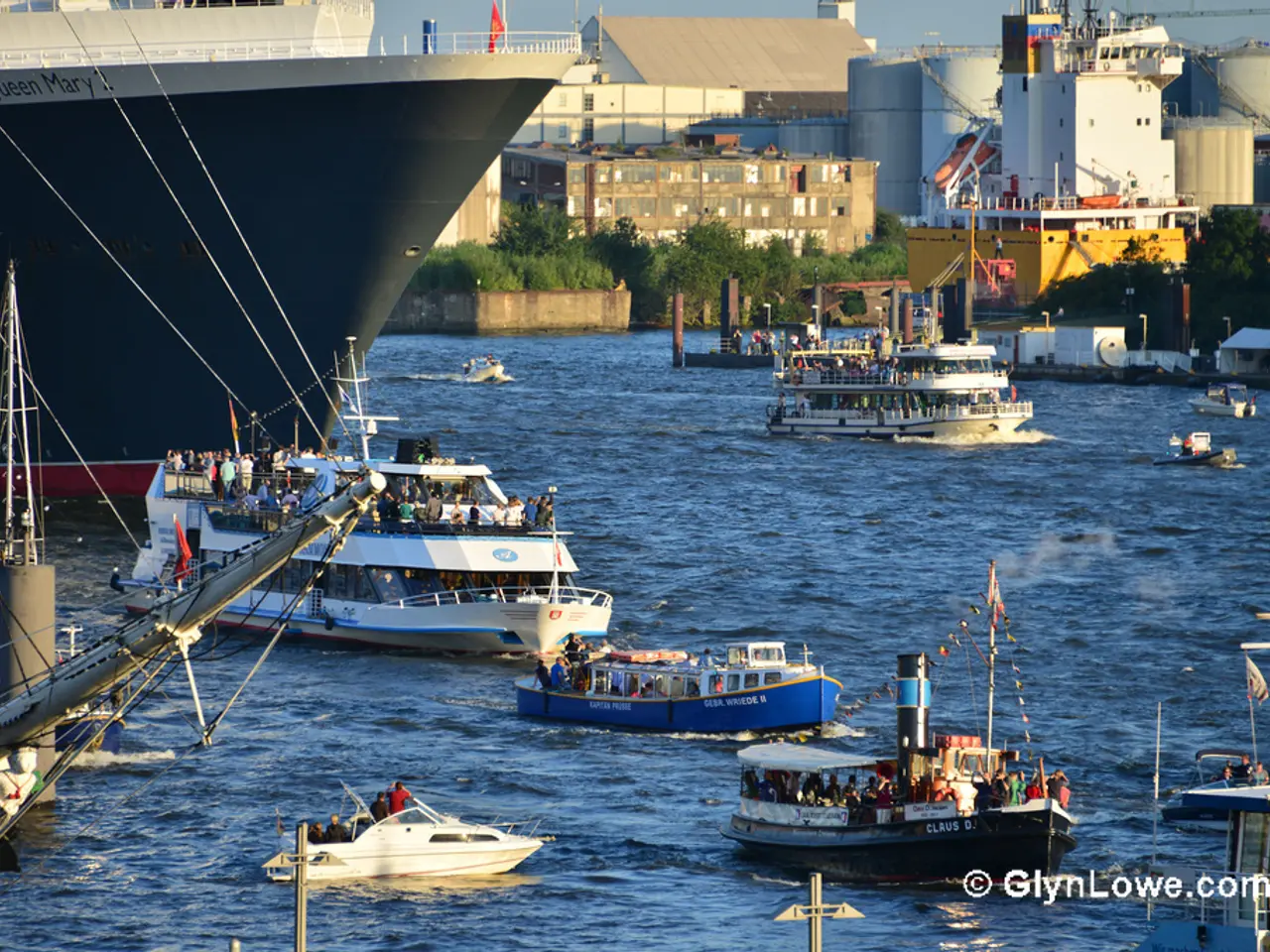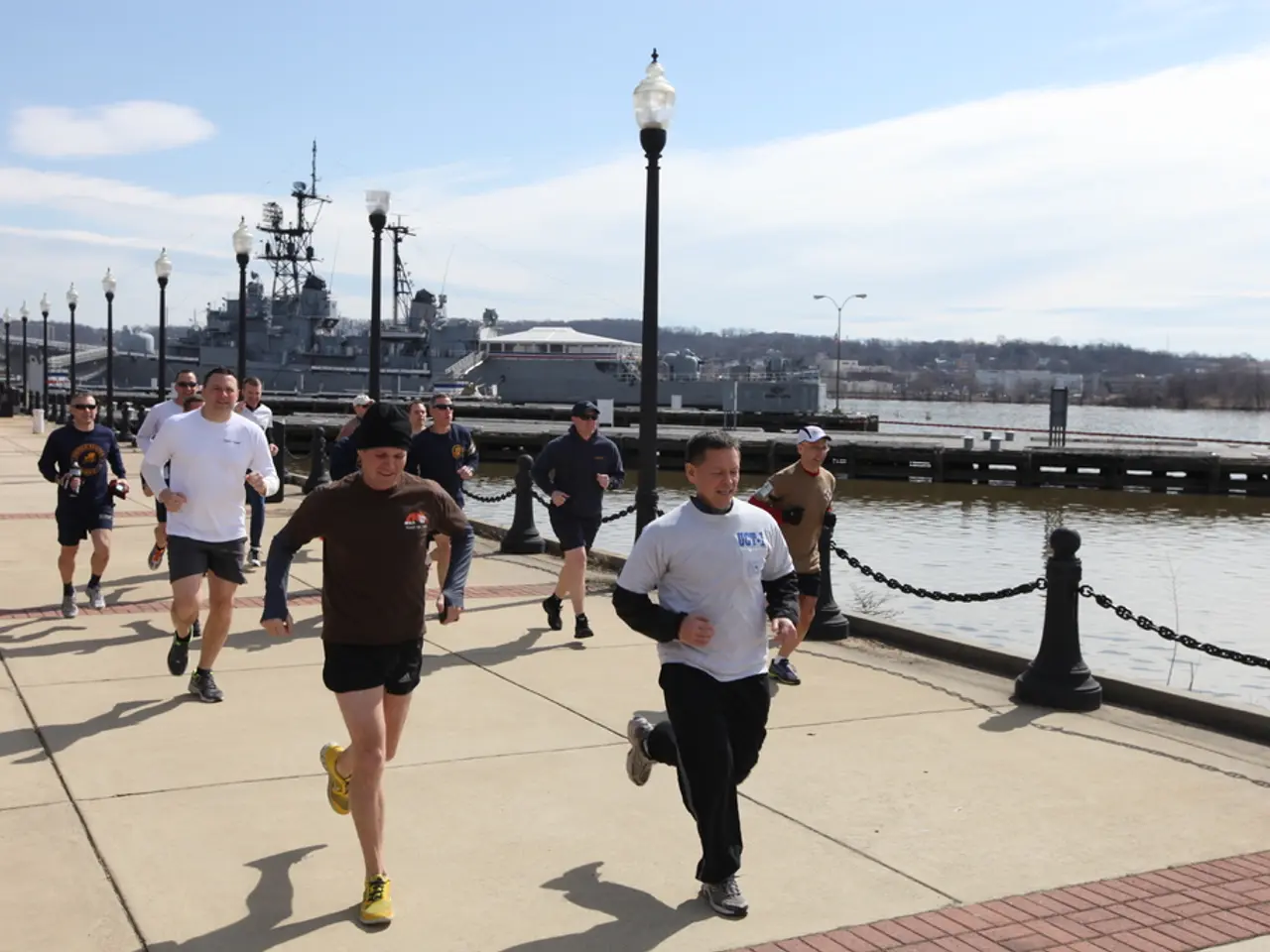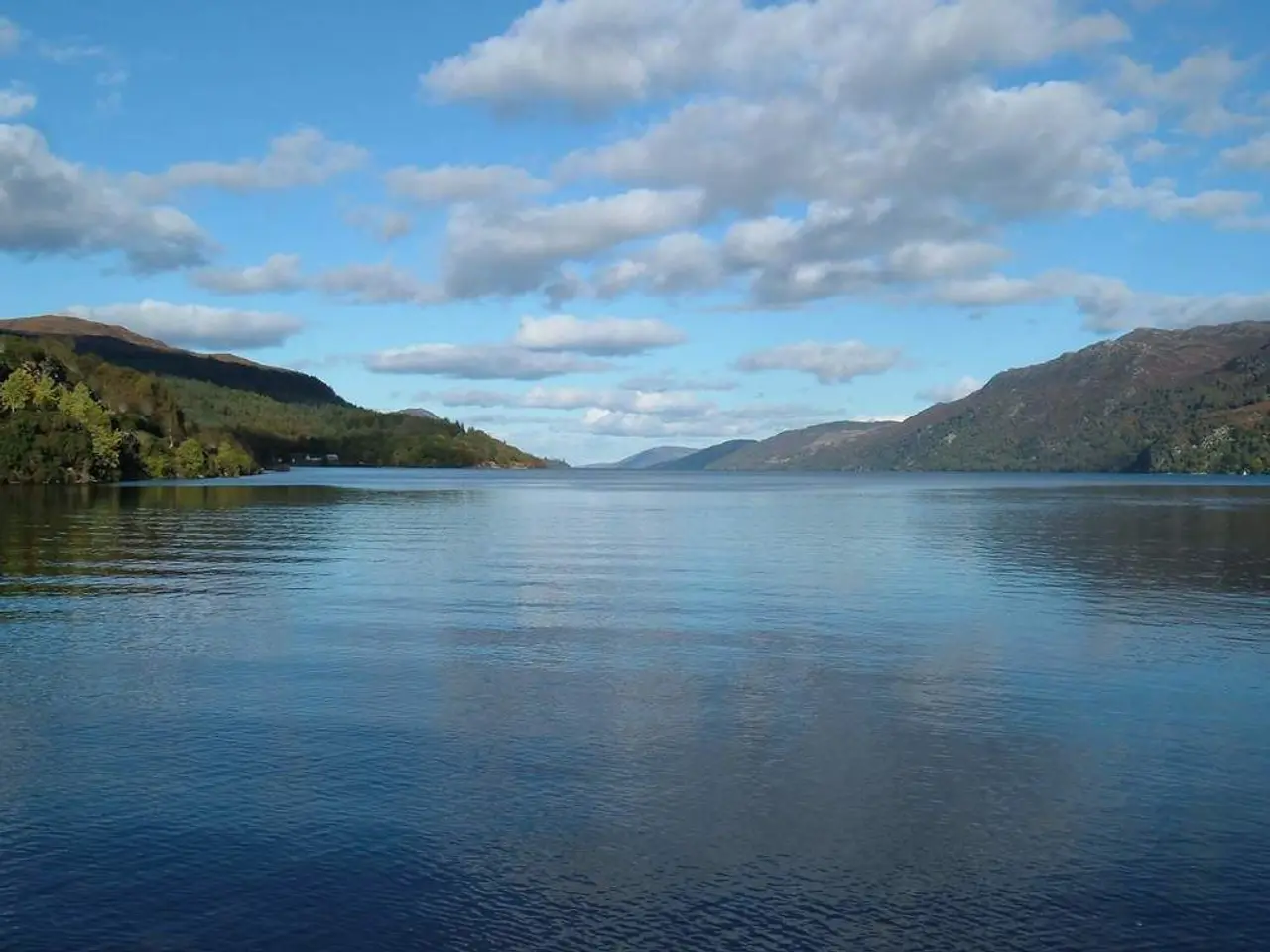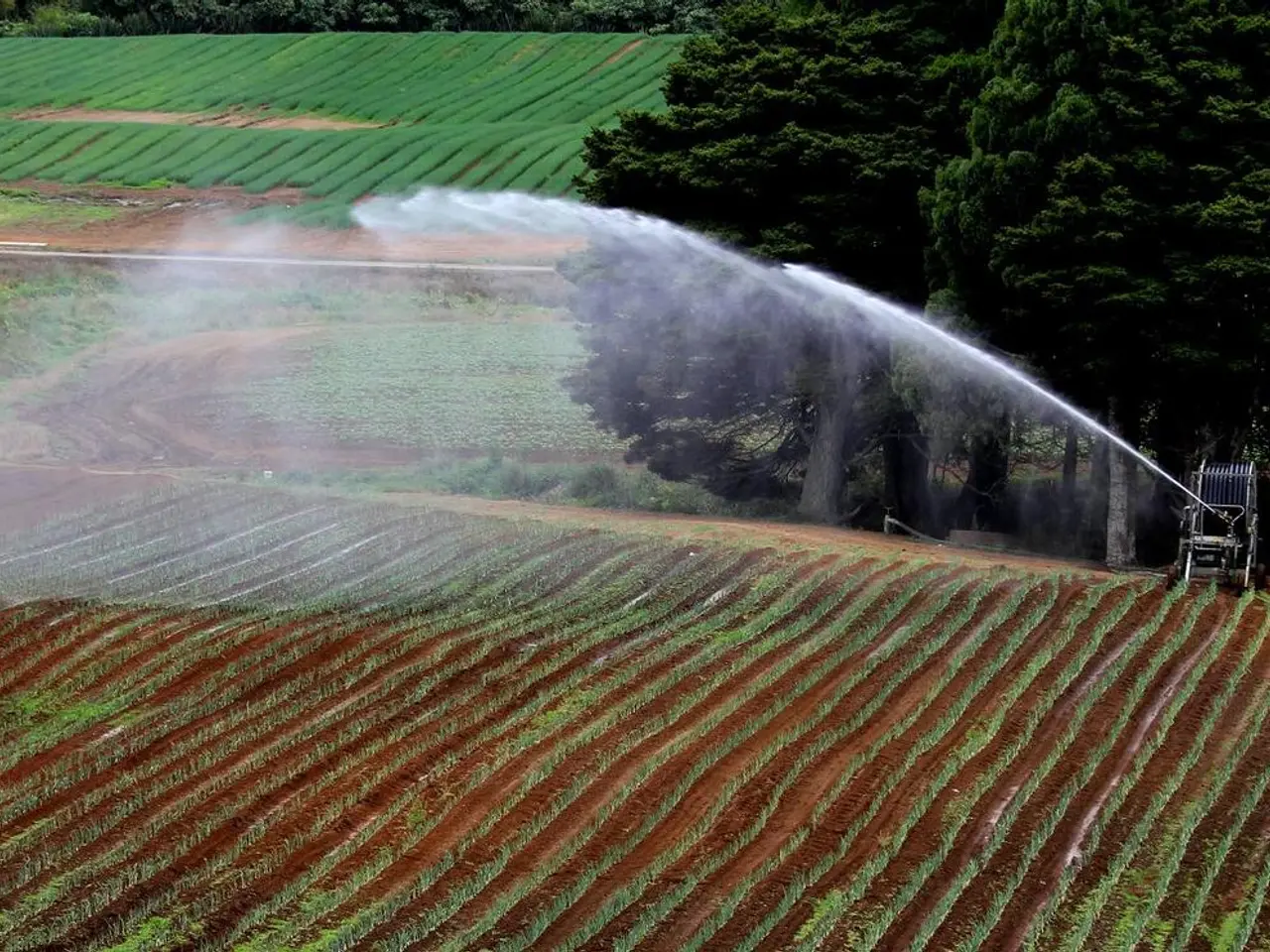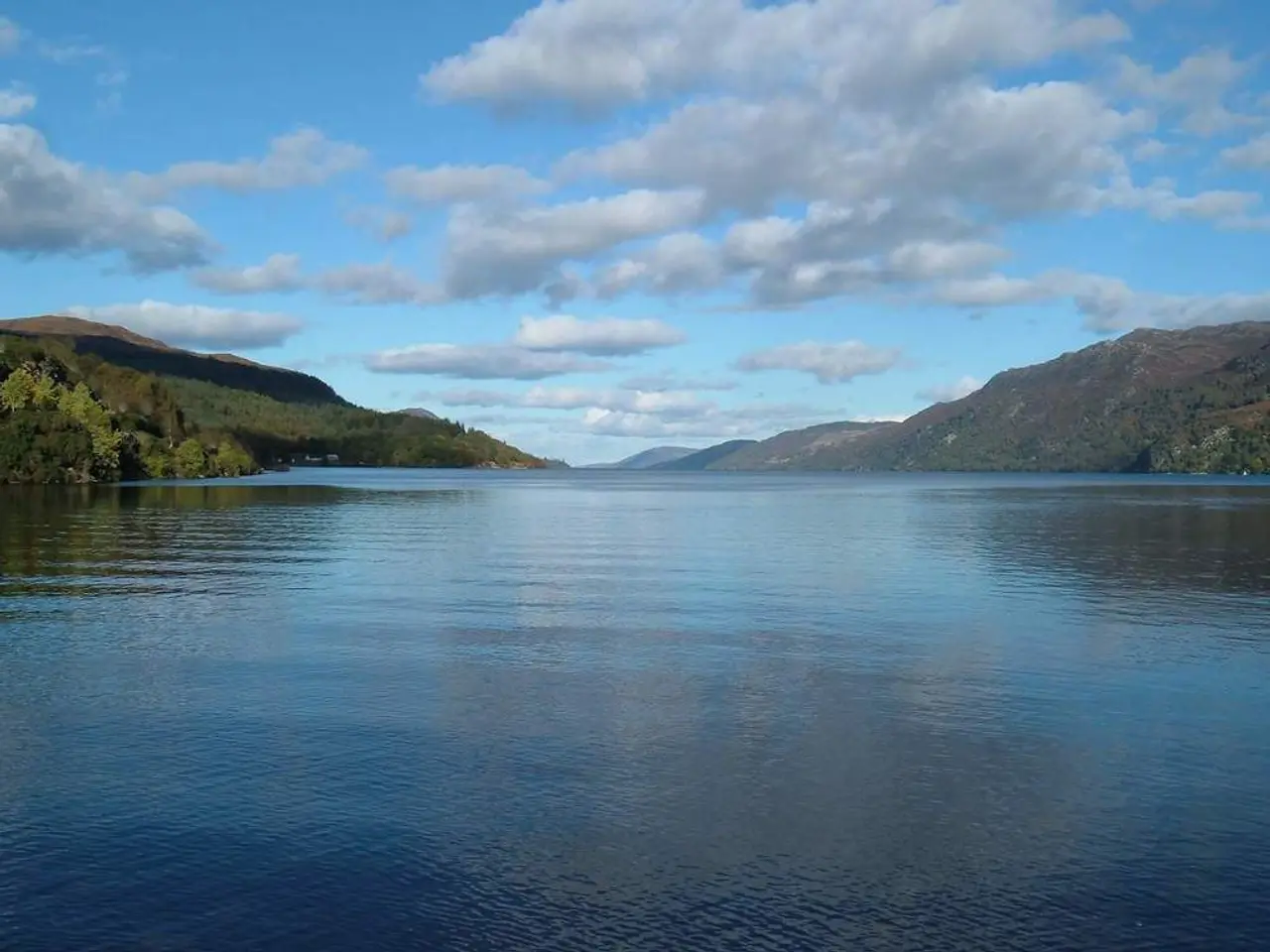Migrant vessel damaged by French military forces
In the coastal region of Pas-de-Calais, France, a contentious incident unfolded as migrants emerged from the sea, seeking refuge. The scene was captured by the BBC, providing a stark reminder of the ongoing migrant crisis and the complexities surrounding it.
The migrant issue is expected to be a key topic during Emmanuel Macron's state visit to the UK, as both countries grapple with the challenge of managing Channel crossings. However, the methods employed by French authorities to address this issue are facing scrutiny, particularly in light of the Pas-de-Calais incident.
In this incident, French authorities, including gendarmes, were reported to have intercepted a migrant boat near the shoreline, even within 300 meters of the coast. The controversial tactic of puncturing the boat with a cutter has sparked legal and humanitarian concerns. Charities such as Care4Calais have threatened legal challenges against such tactics, describing them as "dangerous" and potentially illegal under international law.
The international legal stance on such actions is complex, governed by principles of maritime law, human rights law, and the law of the sea. In international waters, states do not have the right to interfere with foreign vessels unless there is reasonable suspicion of piracy, human trafficking, or other specific illegal activities. Coastal states have sovereignty up to 12 nautical miles from their coastlines, but the use of force against migrant boats is highly controversial and can raise issues of proportionality and necessity.
The exact legality of the French authorities' actions in Pas-de-Calais is questionable. While the UK government has previously sought to manage Channel crossings by turning back migrant boats, legal challenges and opposition from charities have been encountered. The French government's approach seems to be focused on intercepting boats at sea to prevent crossings, but the plans are still subject to legal scrutiny and potential court challenges.
Both governments are engaged in controlling Channel crossings but have not explicitly endorsed puncturing boats. Instead, authorities face legal and humanitarian pushback over these aggressive measures. The Pas-de-Calais incident underscores the ongoing legal and political tension in European migration control efforts, with international law emphasizing restraint and protection of migrants' rights despite states’ security concerns.
The British government praised the French authorities' intervention in shallow waters, but the Prime Minister's office did not issue a statement commending the action of puncturing the boat. The association Osmose 62 described the incident as "disgraceful" and propaganda. It is important to note that such actions are banned by international law, raising serious questions about the ethics and legality of the tactics employed by French authorities.
In conclusion, the Pas-de-Calais incident serves as a stark reminder of the complexities surrounding European migration control efforts and the need for a balanced approach that respects both the security concerns of states and the human rights of migrants. As the migrant issue continues to dominate the political agenda, it is crucial that both the UK and French governments tread carefully to ensure their actions are in line with international law and uphold the principles of human rights and protection.
The Pas-de-Calais incident raises questions about the politics surrounding European migration control, as the controversial tactic of French authorities puncturing migrant boats has sparked legal and humanitarian concerns, potentially breaching international law. The ongoing migrant crisis is expected to be a key topic in Emmanuel Macron's state visit to the UK, with both governments prioritizing the management of Channel crossings while navigating complex legal and humanitarian considerations.
